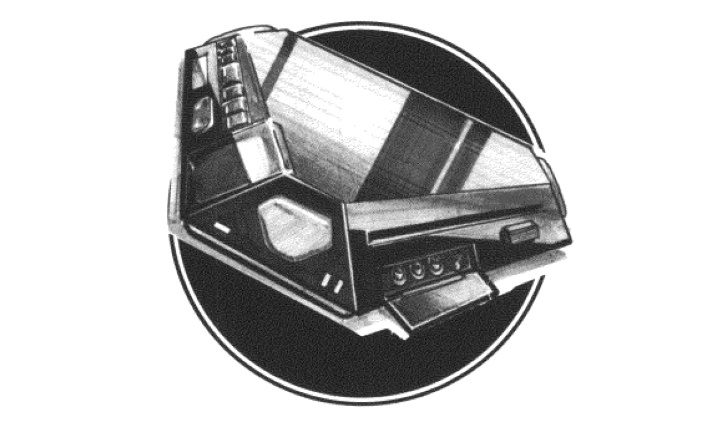author: Adam Belda
People don't want cyberpunk. The retrofuturism of Cyberpunk 2077
Table of Contents
Other ideas that are an integral part of the cyberpunk stylistics may not be present in our world, but only because of the human mentality. Just look at how advanced the prosthetics can be nowadays – we seem to be inches away from thought-controlled, synthetic limbs. However, they remain a niche product mainly designed for people who suffered accidents. People are generally apprehensive about this sort of thing unless they're facing disabilities. However, in our reality, some are disturbed by piercing and tattoos, so it's difficult to imagine replacing your skin with chrome.


WAS HE WRONG OR NOT, GODDAMNIT?
Pondsmith proposed the right diagnosis of the upcoming struggle of humanity – corporate power, natural disasters, looming climate catastrophe, humanity grappling with technology. The twenties of the 21st century will have all that, just a bit more diluted. Google doesn’t send tanks to Tencent headquarters, but corporations are already shaping our reality, and already hold more power than many governments, using their know-how and resources to work above the law. Environmental degradation has not yet devastated entire continents like in Pondsmith's, but severe effects of climate change are undeniable. Instead of cyberpsychosis, in turn, we have the fear of missing out, depression, and Internet addiction. Not bad, Mr. Pondsmith.
Martin Strzyzewski, Gamepressure Editor
Until healthy people become keener on modifying their bodies, the business won't be economically viable. Prosthetics remain expensive and their development is relatively slow. “Cyborgization” would probably be possible with today's technology – journalists have even dubbed Kevin Warwick, who has been experimenting for years with implanting various kinds of electronics related to the nervous system, "the first cyborg." But overall, these concepts are largely absent from public discourse. Is that good? It's hard to say. The fact is that Pondsmith's vision is possible, but unappealing to modern society. And the author probably was aware of that the whole time, judging by the fact he refers to the system as "a role-playing game set in dark future." Few people want dark future, man.
Dark future is also often brought up by people with an obviously technophobic attitude toward reality. How many times have we heard that games are addictive, bad, and cause mental illness; that smartphones will turn us into zombies, and that social media is destroying personal relations. This, too, can hamper the development of cutting-edge ideas. And it's not just an irrational fear of new discoveries. There are quite a few, very rational problems arising from the introduction of new technologies, especially in medicine and biology.
Currently, the consent of bioethical commissions is required for running tests on animals in universities. Without such consent, these studies are very difficult, if not impossible. I do not undertake to judge the actual competence of such commissions – their composition and ethical premises are often controversial – but I only wish to indicate that ethics in modern science are as important as progress itself. And oftentimes, the decisions made on the ethical background block the development of technologies for many years – until a morally unambiguous approach is established, or the general consensus changes. Had it not been for these restrictions, genetic engineering, cloning, and linking of the human brain to machines would certainly have been more advanced today. Of course, that doesn't mean morality isn't relevant in researching new technology – I only wish to indicate that cloning organs or modifying human genome as we can see it in Cyberpunk 2020 is technically possible and would be a reality had humanity been a bit more ruthless. As ruthless as in Pondsmith's vision of the future.

A CHINESE EXPERIMENT
In 2018, a statement from a Chinese scientist He Jiankui caused a storm in the media. He claimed he had "bred" the first genetically modified children in history – twins, who, thanks to the right procedures, should be resistant to HIV. A group of nearly 120 scholars, mostly from China, condemned He's actions in an open letter.
"Evaluation of this so-called experiment from the angle of biomedical ethics exists only in name. Conducting experiments directly on humans can only be described as crazy,” said the document published on the Chinese portal Pengpai Xinwen.
Waiter, my vision is outdated
In terms of technology, Cyberpunk 2020, and probably also 2077 have become, in some ways, obsolete. That vision of the world does not necessarily coincide with how we see the future today. Nowadays, we expect autonomous cars, not flying ones, and instead of impractical cyberdecks, we use equally impractical – given that screen size increases every year – but much more versatile smartphones.

But that's rather obvious, and it's hard to hold it against Pondsmith that times have caught up with his vision, and they weren't gentle with it, too. This is the natural fate of all predictions. Even the ideas of prominent visionaries can be silly when we see them today – take for example Stanislaw Lem's idea of a clockwork clock on the Moon. The author of Cyberpunk 2020 was, however, much less wrong about many things than most of his contemporary sci-fi writers, and some of the discrepancies might have been deliberate – Mike definitely wanted to give his technology and society more style to make his world edgier.

One of the best current examples of retrofuturism is Ridley Scott's Alien. Claustrophobic corridors, the overwhelming machinery, the interiors that resembled cluttered, Soviet submarines, the monochrome screens displaying text-based interfaces. All this not only did a great job building the suffocating atmosphere of the movie but also seemed very real in context of future space travels.
Today, however, the vision presented there seems totally outdated, which didn't stop Alien: Isolation from preserving this quaint atmosphere of the original picture. Just visit the Sevastopol station immediately after strolling along SR-2 Normandy, and you will see the perfect proof of how the idea of space travel has evolved over these forty years.


